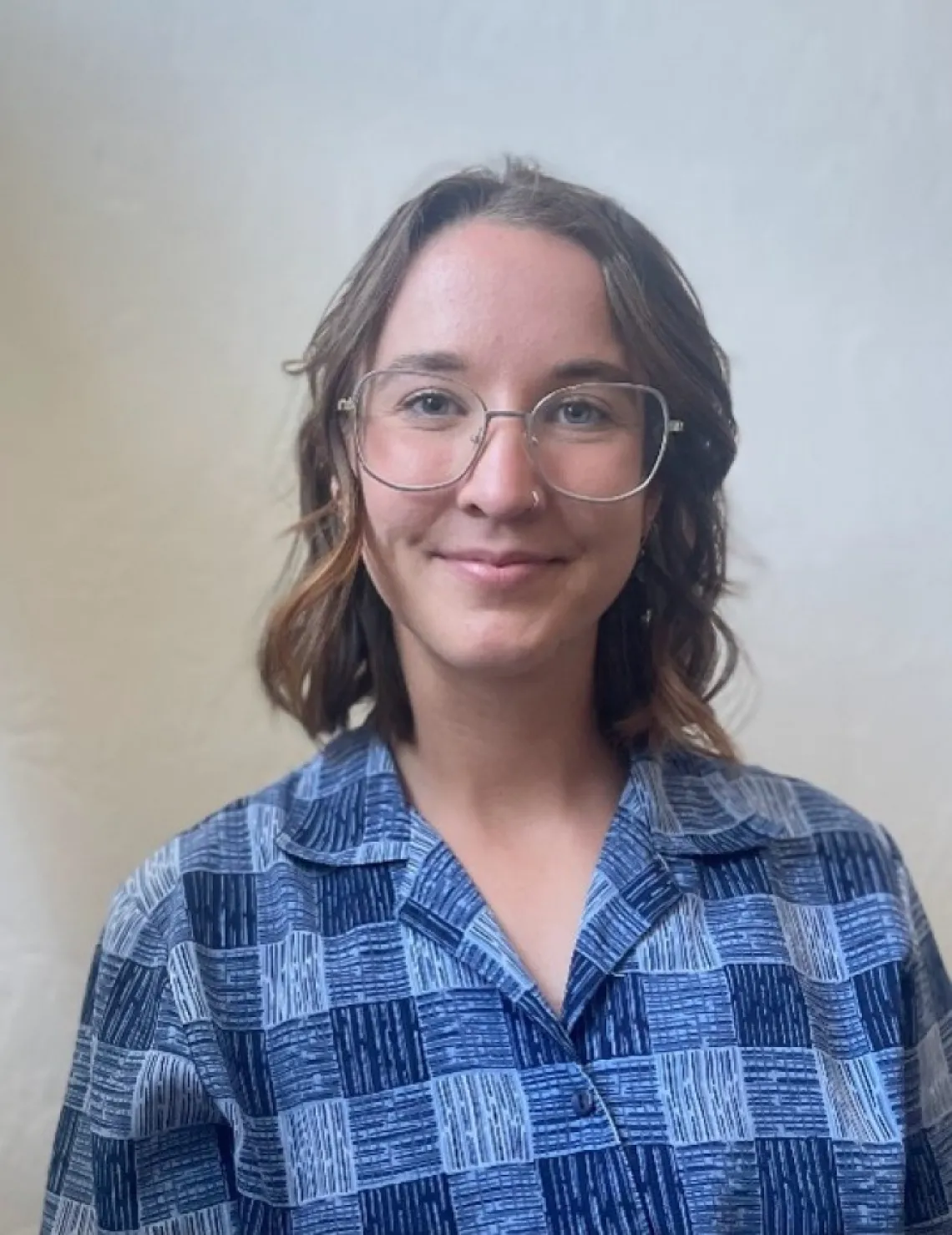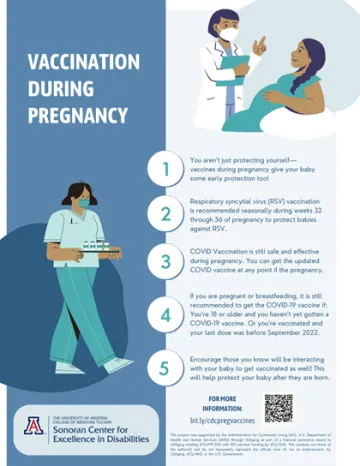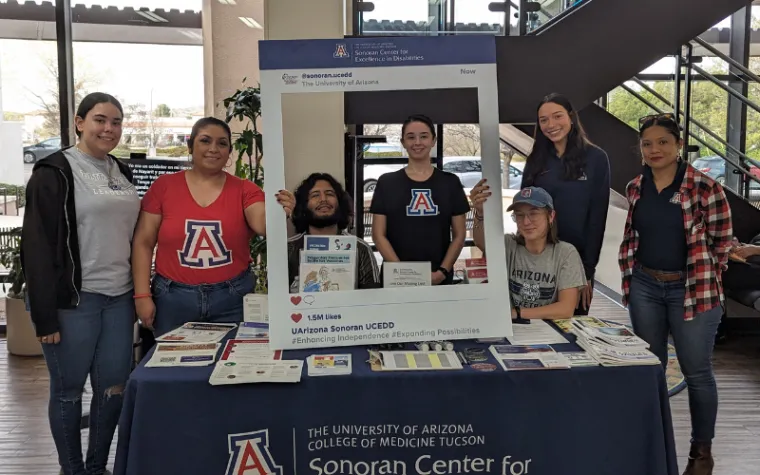The CACTI Blog: Healthy Communities Start with Vaccination - Inclusive Preventative Health Initiatives

By Audrey Beermann, 2023-2024 Undergraduate Certificate in Developmental Disabilities
I joined the University of Arizona as a student interested in a career in medicine. However, throughout my time here, I have learned how important public health campaigns are in the effectiveness of medicine. For example, it does not matter if we find the cure for cancer if no one in the public knows about it, trusts it, or is physically able to receive it. For this reason, many of the activities I have chosen to engage in have promoted health measures for the Tucson and University of Arizona communities that will keep them healthy and stop them from getting sick. However, through the courses that I have taken for my Certificate in Developmental Disabilities, I have also learned how many public health initiatives and medical training are not inclusive to disabled people. This leads to people with diverse backgrounds having shorter lifespans and higher rates of many diseases. Through research I performed with Dr. Julie Armin, I learned that most doctors do not feel confident in their ability to help a patient who has a developmental disability. For this reason, disabled people often do not receive the same healthcare that could keep them from becoming sick. As a result of the survey sent to doctors, Dr. Armin and her team created a Continued Medical Education course to help improve their ability to work with patients with intellectual and developmental disabilities. This course educated doctors on consent and accessibility when working with patients with IDD. It also highlighted measures that help prevent sickness, such as discussing a flu shot with a patient with IDD.
This work is important to improving public health. However, we do not need to be doctors to promote health measures for people with IDD. The knowledge I gained from the research I performed led me to want to engage more in promoting inclusive healthcare practices. As a part of my certificate in developmental disabilities, I completed a mini-internship with the Sonoran Center for Excellence in Disabilities. For this, I helped on a team that planned vaccine clinic events. This team planned and collaborated on events to help developmentally disabled and elderly people receive various vaccinations including influenza, COVID-19, and RSV. For these events, I created two different flyers. One of these offered general vaccination information, including which vaccinations are recommended for people to receive according to the Center for Disease Control. The second specifically provided information about vaccination during pregnancy, as an event the Sonoran Center was also attending was centered around pregnant or parenting disabled people.

“1. You aren’t just protecting yourself - vaccines during pregnancy give your baby some early protection too! 2. Respiratory Syncytial Virus (RSV) vaccination is recommended seasonally during weeks 32 through 36 of pregnancy to protect babies against RSV. 3. COVID Vaccination is still safe and effective during pregnancy. You can get the updated COVID vaccine at any point in the pregnancy. 4. If you are pregnant or breastfeeding, it is still recommended to get the COVID-19 vaccine if: You’re 18 or older and you haven’t yet gotten a COVID-19 vaccine. Or you’re vaccinated and your last dose was before September 2022. 5. Encourage those you know will be interacting with your baby to get vaccinated as well. This will help protect your baby after they are born.”
As part of my participation, I also attended one of these vaccine clinics. This event was hosted in Nogales, Arizona, where we hosted a health fair of several other organizations. Through this event, I was able to talk to several people about the Sonoran Center and help pass out some of the flyers we were highlighting. Given the location of this event, several of the participants were Spanish-speaking only. As I considered the importance of the event, I realized that many of these individuals likely have intersectional identities that could be impacting their health. Intersectionality emphasizes that, as we grow to make healthcare more inclusive and promote healthcare options to a broader range of people, we must consider all aspects of their identity. For example, if we did not have Spanish-speaking people tabling at the health fair and providing the vaccines, it would not have been accessible for most of the disabled participants we were trying to engage. Another example is that if we were to host a vaccine clinic that had interpreters of different languages, some people would still not be able to participate if the building was not physically accessible. For this reason, it is important to receive feedback from the community we are trying to serve to make sure events are actually inclusive for them and not only for their presumed needs.
Going forward as a medical professional who will have patients with developmental disabilities, I have learned ways to create inclusive practices for people with IDD. I have also learned that person-first care does not presume needed accommodations for each person. Rather it will listen to the people that it is trying to include and work with them to create a fully inclusive service.

The CACTI Blog features the voices of our interdisciplinary trainees and Community Advisory Council members as they highlight diverse images of people with disabilities and provide community information and advocacy on disability issues. Check Out The CACTI Blog
